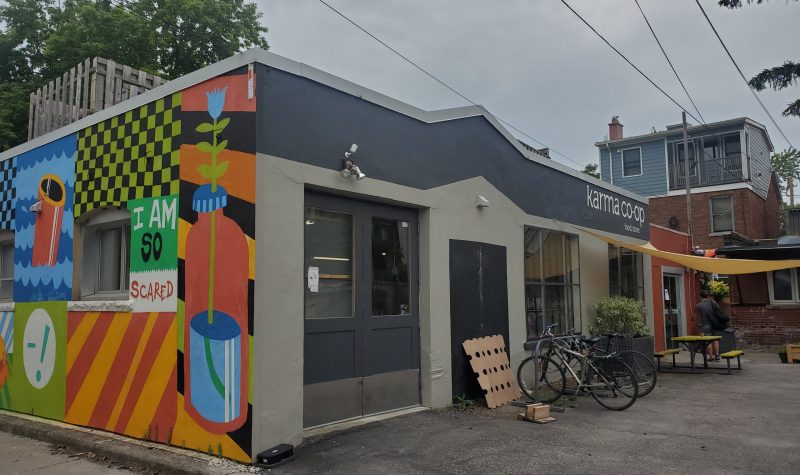In the 2023 Canada’s Food Price Report, it found that the national average food cost increased by over 10 per cent.
As the price increases, so does the demand for alternative sources for groceries, according to The Daily Bread Food Bank. In March, the food bank had over 270,000 visits, the highest in 40 years, but the Daily Bread is not alone in that increase.
Karma Co-op is a member owned grocery store at Barton and Karma lane that has been around for over 50 years. Compared to June 2022, they have had an over 20 per cent increase in sales.
“Our recent history, we were doing okay, barely breaking even, maybe losing a little money… [but] we have had 10 to 20 per cent growth over the last six months,” says Paul Decampo, manager of Karma Co-op. “Our sales have been exceeding not just the previous year but the last two years.”
Decampo says that part of the influx of sales has come from a large community out-reach effort to get everyone aware of the co-op and to recruit more members. He says that while getting people aware of the prices helped, the rise in the cost of living played a part.
“I would say that we did see some turbulence [with rising food costs],” says Decampo. “As a community, we are fascinated by food because food is the hub at which so many different factors that influence our lives interconnect. And that is the economy.”
Karma is not a typical grocery store. As a co-op it relies heavily on the community to operate with a membership fee of $12.50 dollars every quarter for people to shop there. Members then get a 10 per cent discount of all items in the story and an additional five per cent if they do two hours of volunteer work at Karma.
Decampo says that Karma’s aim is to have ethically and locally sourced produce for a competitive price. The prices before the discount for most items is usually cheaper than other large chain grocery stores when it comes to produce. For example, at No Frills, a pound of yellow potatoes is $2.49 dollars while at Karma it is $1.99 dollars.
“I have parents-in-law in a small Ontario town. I would go shopping for them at the No Frills all through January and February when I was there a lot. I was seeing conventional produce more expensive than organic products in our store and this is all of the basics like onions and carrots,” says Decampo.
Karma’s model has inspired members of the community to become more active in the co-op sector to provide more options even with rising food costs. Serge Khvatov, a third year student at Toronto Metropolitan University, helps manage a student run market called Mutual Marketplace every Wednesday at 55 Gould St. They have been working at Karma for over a year.
Khvatov runs a booth at the Mutual Marketplace where they sell produce. They get the produce from their work and sell it at the same price they purchased it at making no extra money on each sale which Khvatov says is to combat the rising cost of living.
“One of the main issues right now is the cost of living crisis. Folks may not have enough money to afford produce. With financial strain, quality food is often sacrificed and that impacts your health and well being. So we want to provide to our community on both the cost and quality,” says Khvatov.
Despite the cost of living, both Decampo and Khvatov say they want to make sure everyone involved in the process is fairly treated.
“When we talk about fair prices it’s not just about the consumer end of the transaction, we also want to be fair to our suppliers and producers,” says Decampo. “If I can purchase at a fair wholesale cost directly from a farmer or a food manufacturer with no distributor in between, then they can get paid fairly and I still have a competitive price for which I can base a fair retail price.”
Listen below for the CJRU story:


